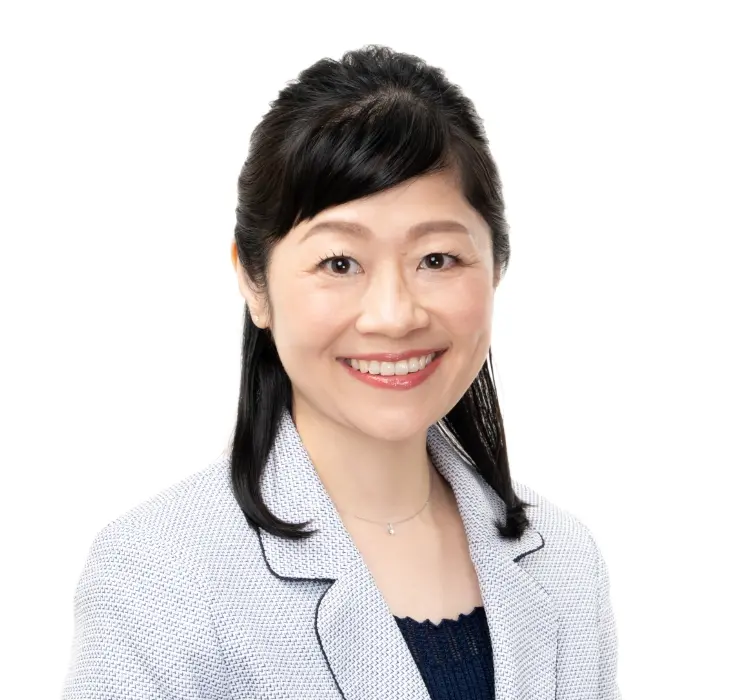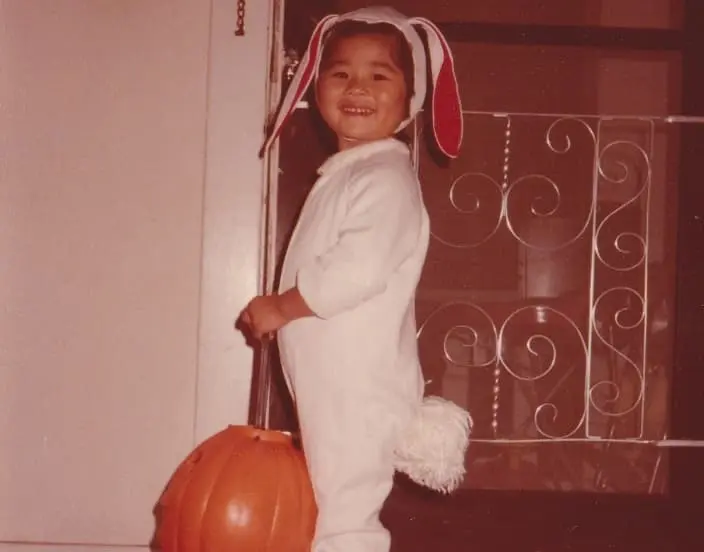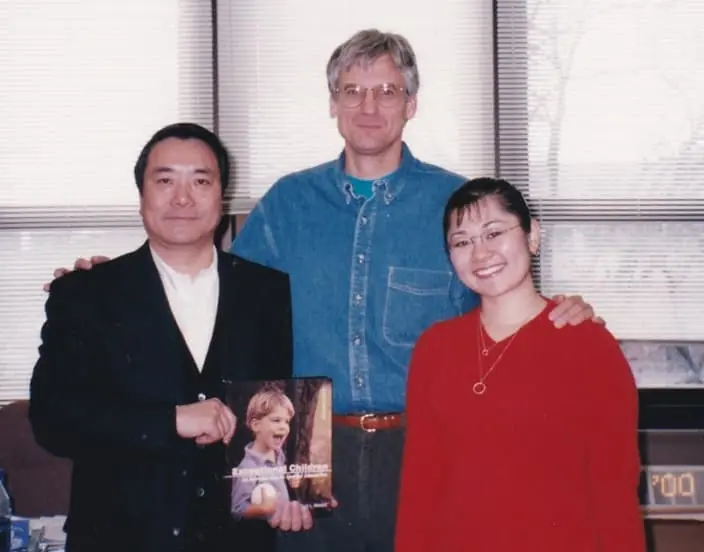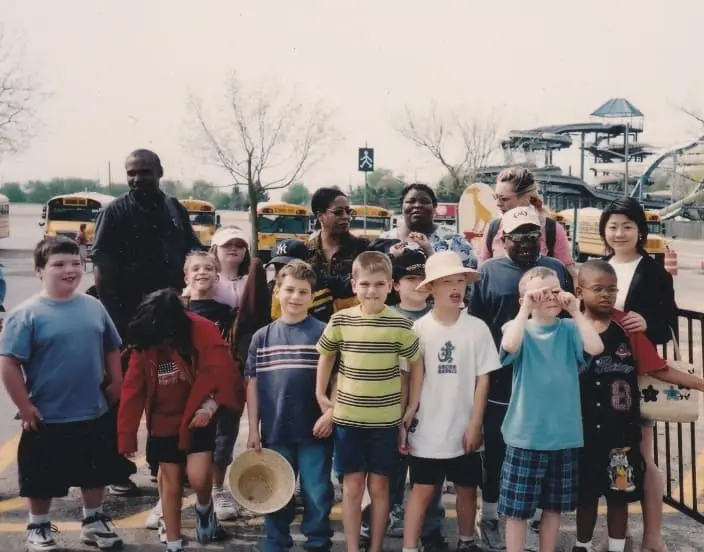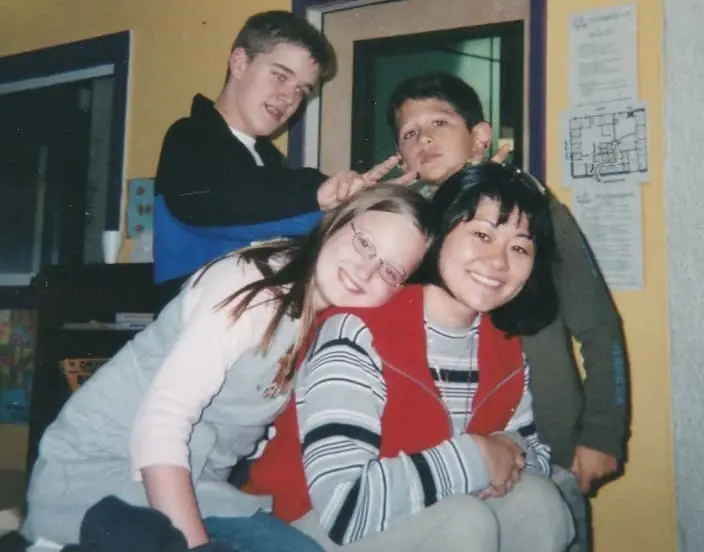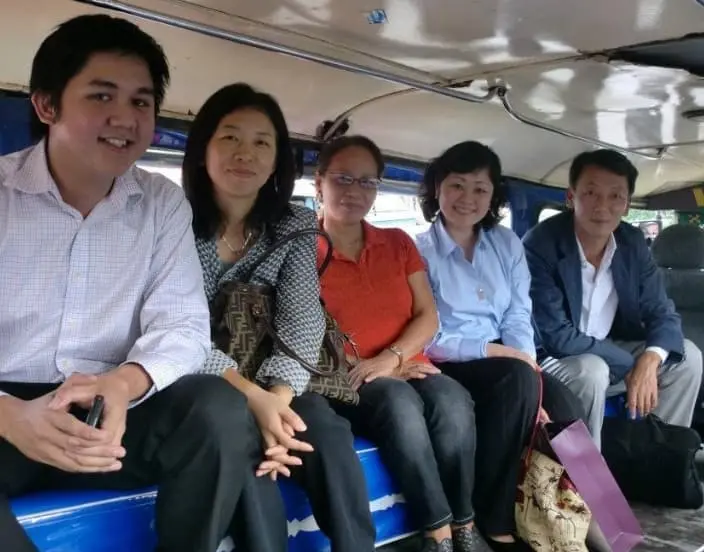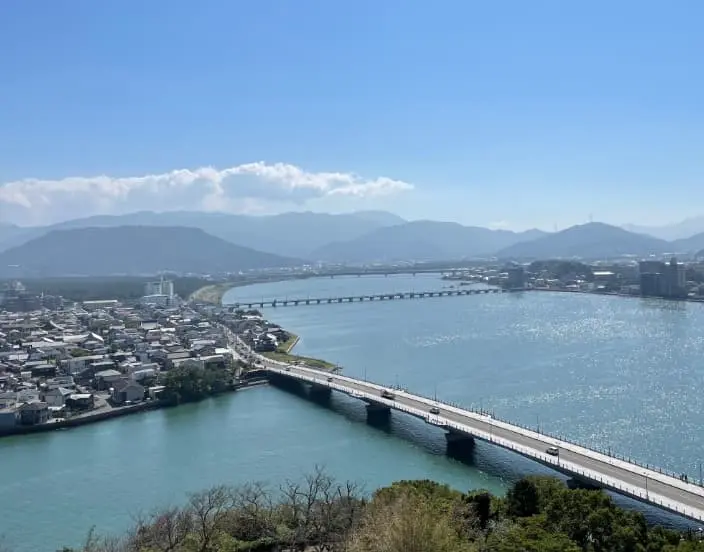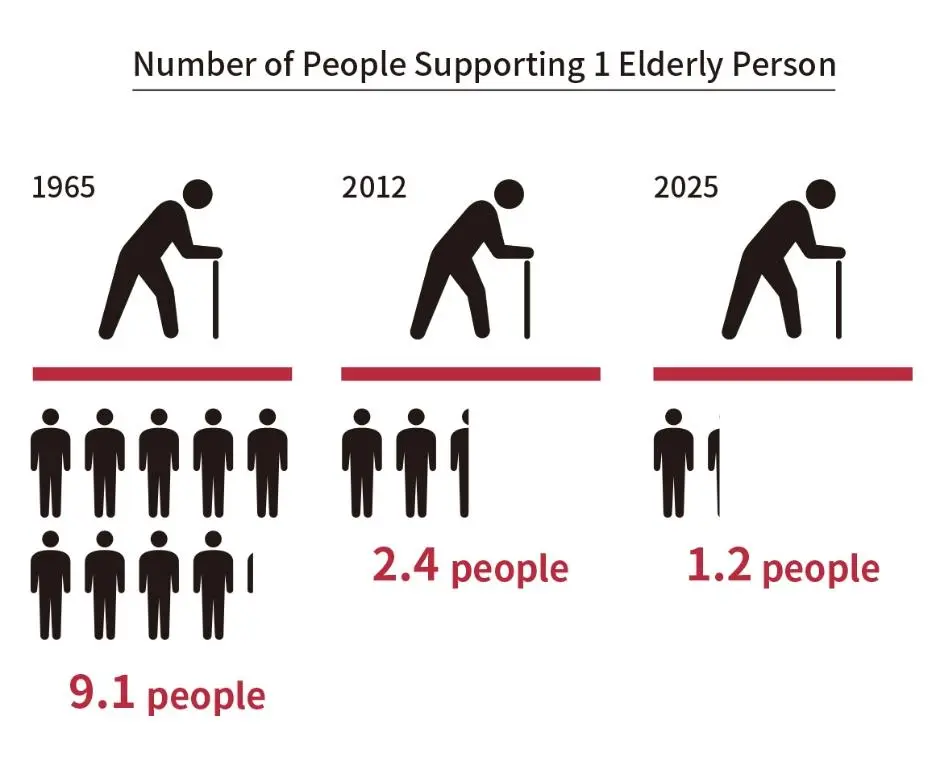Karatsu City Council Member
River Furuta
I am a Japanese national, born in Japan and raised abroad. I speak fluent English and Japanese, and a little bit of Spanish. In the year 2019, I took a trip to Karatsu, a city located in Saga Prefecture on the island of Kyushu, Japan. I fell in love with everything this city had to offer, and became its resident 2 years later.
For the next four years in Karatsu, I worked as a certified caregiver at a nursing home and at a facility for individuals with intellectual disabilities. This allowed me to recognize both the challenges and the untapped potential within Karatsu. This insight motivated me to enter politics with a commitment to creating a more livable and inclusive community.
In 2025, I was elected for the first time in the Karatsu City Council election. I am currently a member of Shinpu Karatsu, a newly established political group.
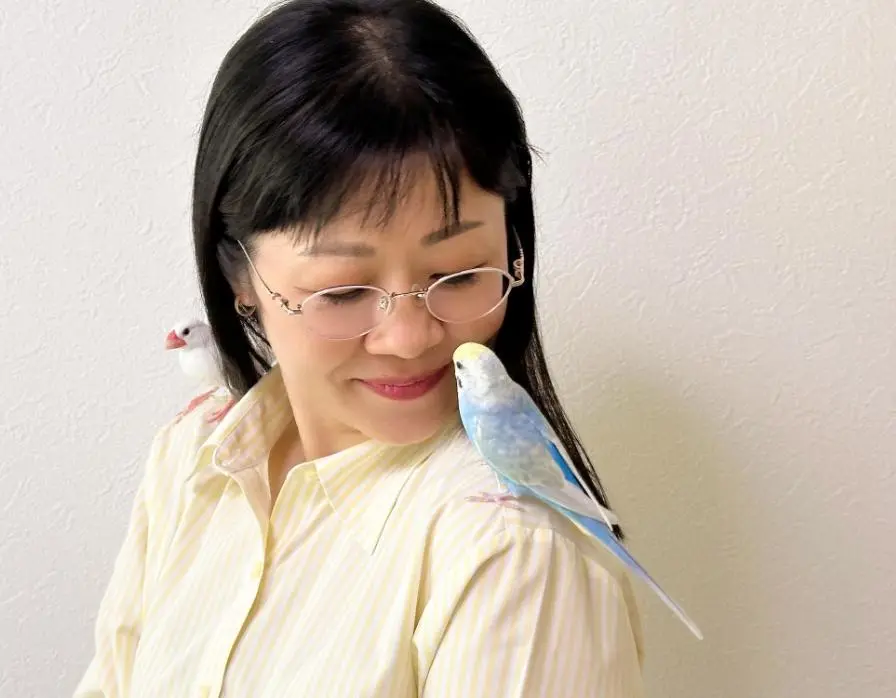
Growing up, most of the people with whom I interacted had difficulty pronouncing and remembering my name. Although I am truly grateful for the name my parents gave me, I chose and named myself River when I arrived at River Campus of the University of Rochester. I officially changed my name to River later on in Japan.
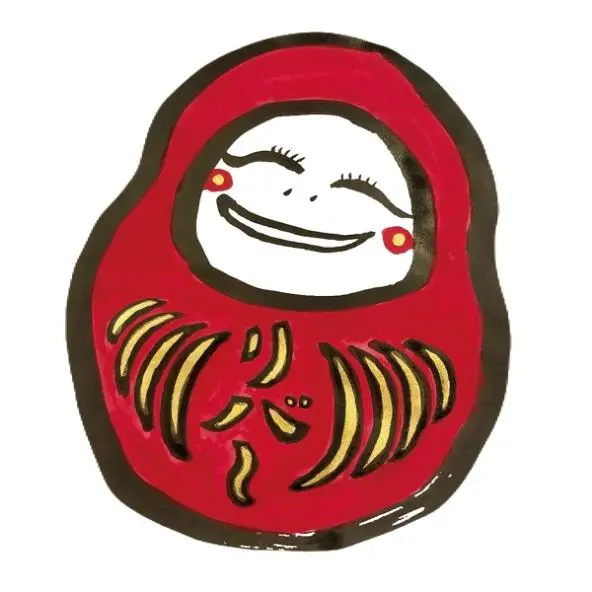
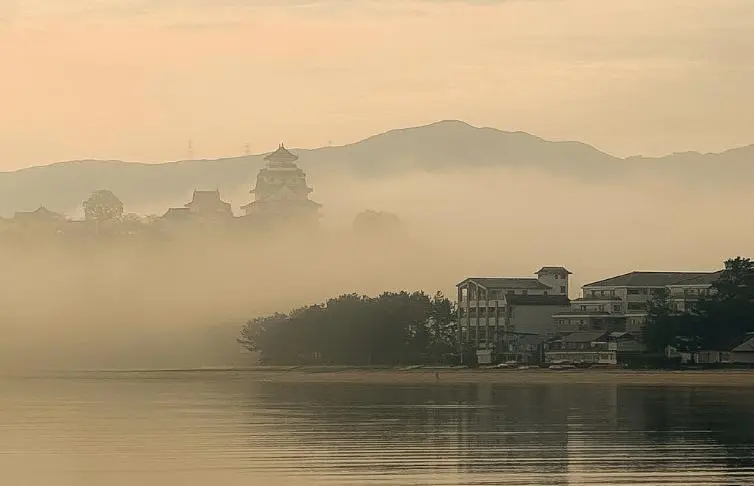
About Me
Personal History
-
1977


-
Born on August 5th in Gunma Prefecture of Japan
Shortly after birth, moved to the United States due to my father’s job transfer -
1982

-
Returned to Tokyo, Japan
Studied at Seisen International School (KG~10th grade) -
1995

- Graduated high school at Northfield Mount Hermon School(Northfield, MA)
-
1999


-
B.A. Health & Society and B.A. Psychology, University of Rochester (Rochester, NY)
Studied abroad senior year at Rhodes University (Grahamstown, South Africa) -
2002

-
M.Ed. Special Education, College of Education Ohio State University (Columbus, OH)
Worked as a special education teacher in Columbus and Seattle -
2004

-
Returned to Tokyo, Japan
Held responsible positions across many industries - 2013
-
Established Daruma Energy Co., Ltd. with my father
Managed METI subsidized projects, assisted national resilience activities, attended international exhibitions as a sales rep for several companies, etc. - 2017
-
Moved to Fukuoka city
Worked at a customer service center (email/phone operator, translator) - 2021
-
Moved to Karatsu city after completing a training program for care workers
Worked at Nursing Home Sakura for a year (care worker) - 2022
-
Joined Karatsu Gakuen (care worker & supporter for adults with severe mental disabilities)
Certified Care Worker since 2024 - 2025
-
Elected member of Karatsu City Council
Political Group: Shinpu Karatsu
Urban Development Standing Committee
Degrees & Qualifications
Academic:
- University of Rochester (B.A. Health & Society and B.A. Psychology)
- College of Education Ohio State University (M.Ed. Special Education with specialization in multiple disabilities)
- Media Research, Inc. (completed course in JPN ⇒ ENG translation; specialty in environmental topics)
Language:
- TESL/TEFL
- The EIKEN Test in Practical English Proficiency (Grad 1)
- Japanese-Language Proficiency Test (N1)
- United Nations Associations Test of English (level Superior A; Foreign Minister’s Commendation for passing with highest score nationwide)
- Spanish Language Proficiency Test (grade 4)
- TOEIC score 985
Business & Welfare:
- The Japan Business Law Examination (Grade 3)
- Certification Test for Mental Health Management II (Managers’ Course)
- Certified care-fitter (assists elderly & handicapped people)
- Biblical Counseling
- Certified EAP Counselor
- Certified care worker
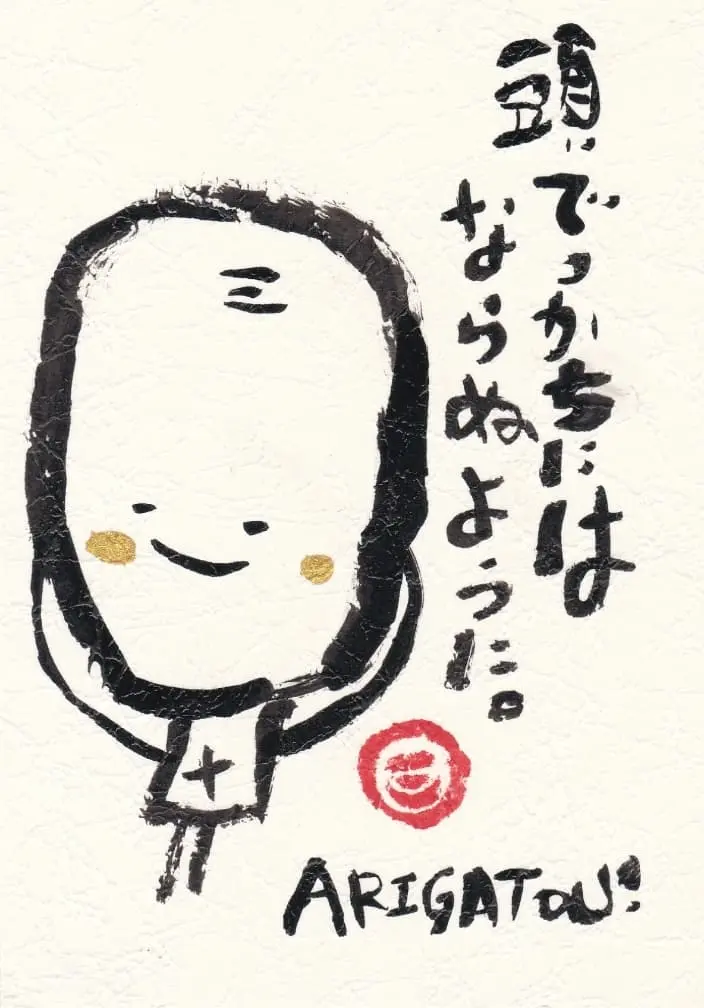
(tr. Avoid becoming big-headed.)
Personal Virtue: humility & gratitude
My Foundation
My family genealogy is quite extraordinary in that many of my ancestors played a vital role in making modern Japan. Most notable is my maternal great-grandfather, Korekiyo Takahashi, a leading financier of Japan. He served as a former Deputy Governor of the Bank of Japan, a former Minister of Finance (five terms), a former Prime Minister, and held many other notable positions throughout his life. His portrait was featured on the 50-yen note in the 1950s. His youngest daughter, Eiko, is my maternal grandmother.
I was born in Japan on August 5, 1977. Shortly after my birth, my family moved to the USA due to my father’s job transfer, and we returned to Japan when I was 5 years old. I studied at an international school in Tokyo until 10th grade, finished high school in Massachusetts, received two B.A.s from University of Rochester, and my M.Ed. from Ohio State University. Right after the abolition of apartheid, I studied in South Africa for 6 months, which impacted me deeply.
I pursued a career in special education and taught at 3 private schools in the USA. My colleagues expanded my nurturing skills, and trained me to observe effectively so that I can set appropriate goals and creatively motivate my students. Simultaneously, my students taught me about humanity and helped me realize the importance of contributing to my local community.
When I returned to Japan at age 27, I leveraged my personal skills and diverse background to work various positions across a wide range of industries. I gained valuable on-site experience, built trusting relationships with many Japanese people from all walks of life, and began to assimilate to the “Japanese way.” I harmonized the best of Eastern and Western cultures and embrace an eclectic style.
Glows & Grows
My Destiny with Karatsu
In the year 2019, a colleague and I took a 90-minute train ride from Fukuoka city to see the Karatsu Kunchi festival in Saga Prefecture. Men, young women, and children pulled more than 14 festival floats while chanting, "Enya! Enya!" and "Yoisa! Yoisa!" It was such an exhilarating experience. Afterwards, we toured the city, which continued to be just as captivating — the beauty of Karatsu Castle, the elegance of drinking tea served in Karatsu ware, the exquisite Karatsu Bay, Matsuura River, Niji no Matsubara, and Kagamiyama… I fell in love with this city and became its resident two years later.
Fate has a way of showing up in mysterious ways.
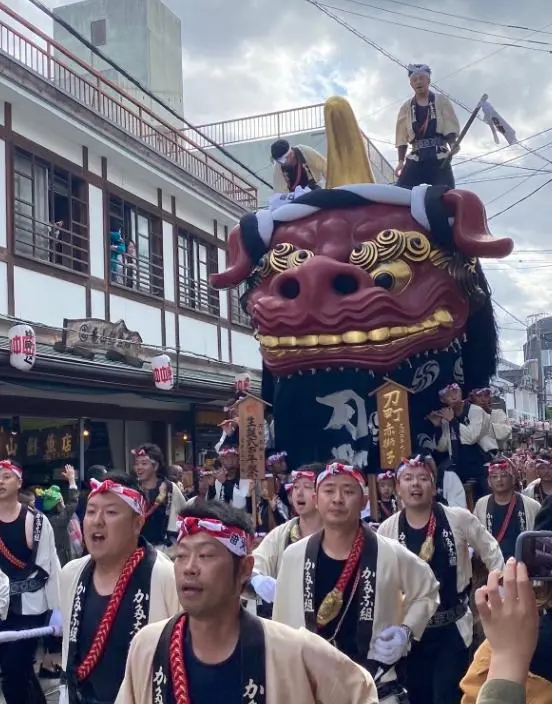
festival float out of 14
I found out that my great grandfather, Korekiyo Takahashi, had lived in Karatsu for a year when he was 17 years old. He taught English at the Karatsu Domain Taikoryo, which was established within Karatsu Castle in 1871. Some of his students were Kingo Tatsuno, Tatsuzo Sone, Kotaro Ohshima, and Tameyuki Amano. Interestingly, I have been led to places related to my great-grandfather many times before, thus I believe this to be no different. I am extremely grateful that he has guided me to this city, and I am sincerely honored that I have a historic connection with Karatsu.
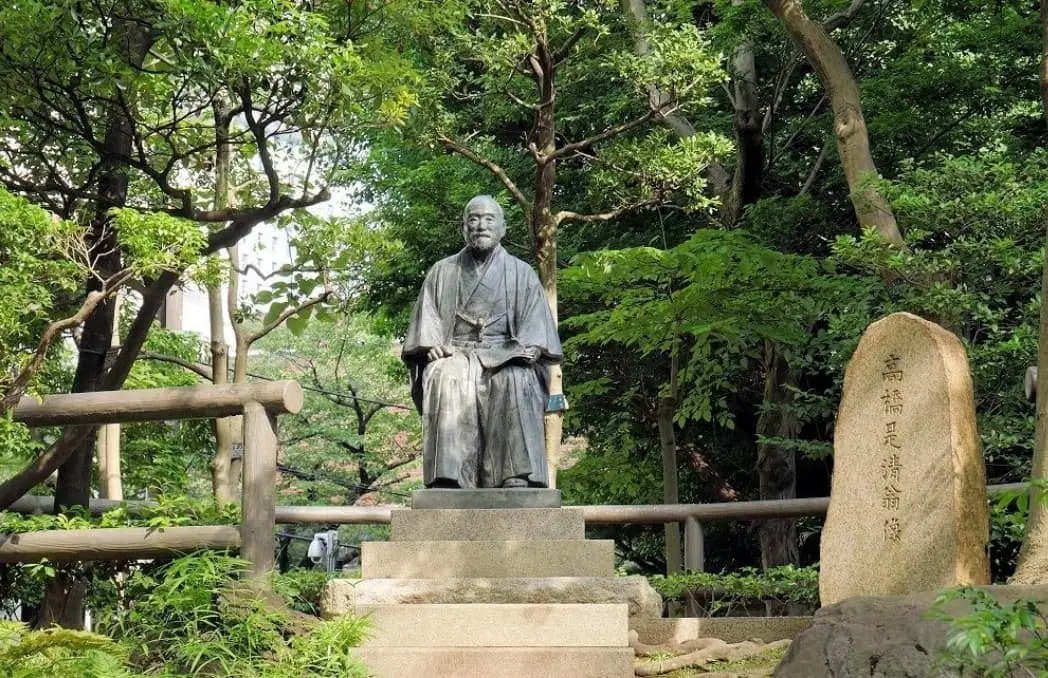
Depopulation and the 2025 Problem
Once I got acclimated, the prosperity of my local community gradually became just as important as my personal wellbeing, and I began to feel responsible for the future of Karatsu. While Karatsu is already a wonderful place to live, it has a lot of potential and much room for growth.
My greatest concern is its steady population decline of about 1,440 people per year. By simple calculation, the population will be halved in 36 years. This does not simply mean a decrease in the number of residents, but encompasses a major change in city dynamics.
With fewer people working in Karatsu, labor shortage and lack of successors will affect many local businesses, further perpetuating corporate bankruptcies. Local tax revenue will invariably decrease, diminishing the range and quality of administrative services such as maintaining infrastructure, utilities, education, and welfare. This will further aggravate living conditions, causing young people to leave Karatsu, creating a cluster of retired and elderly citizens. Urban planning is already encouraging citizens who live in the outskirts of Karatsu City to move to central areas, in which a higher population density allows for a more convenient lifestyle (more hospitals, public transportation, stores, etc.)
Another concern is that in the year 2025, 1 out of every 4 Japanese will be 75 years old or older (advanced elderly society), increasing the demand for health care and welfare services. Pension payouts will be substantial, as well.
However, due to depopulation, there are not enough care workers nor people to bear the costs of these services, and no savings for the next generation. Medical, nursing, and pension systems cannot be maintained; many more complex issues will arise as a result.
Depopulation and the 2025 Problem are not unique to Karatsu, but are nationwide issues. The Japanese government has introduced various measures, but noticeable changes are yet to occur in Karatsu.
Karatsu is a very special place for me, and I feel a definite sense of urgency. I would like to use all the experience and skills I have cultivated thus far to see Karatsu flourish despite this desolate national trend.
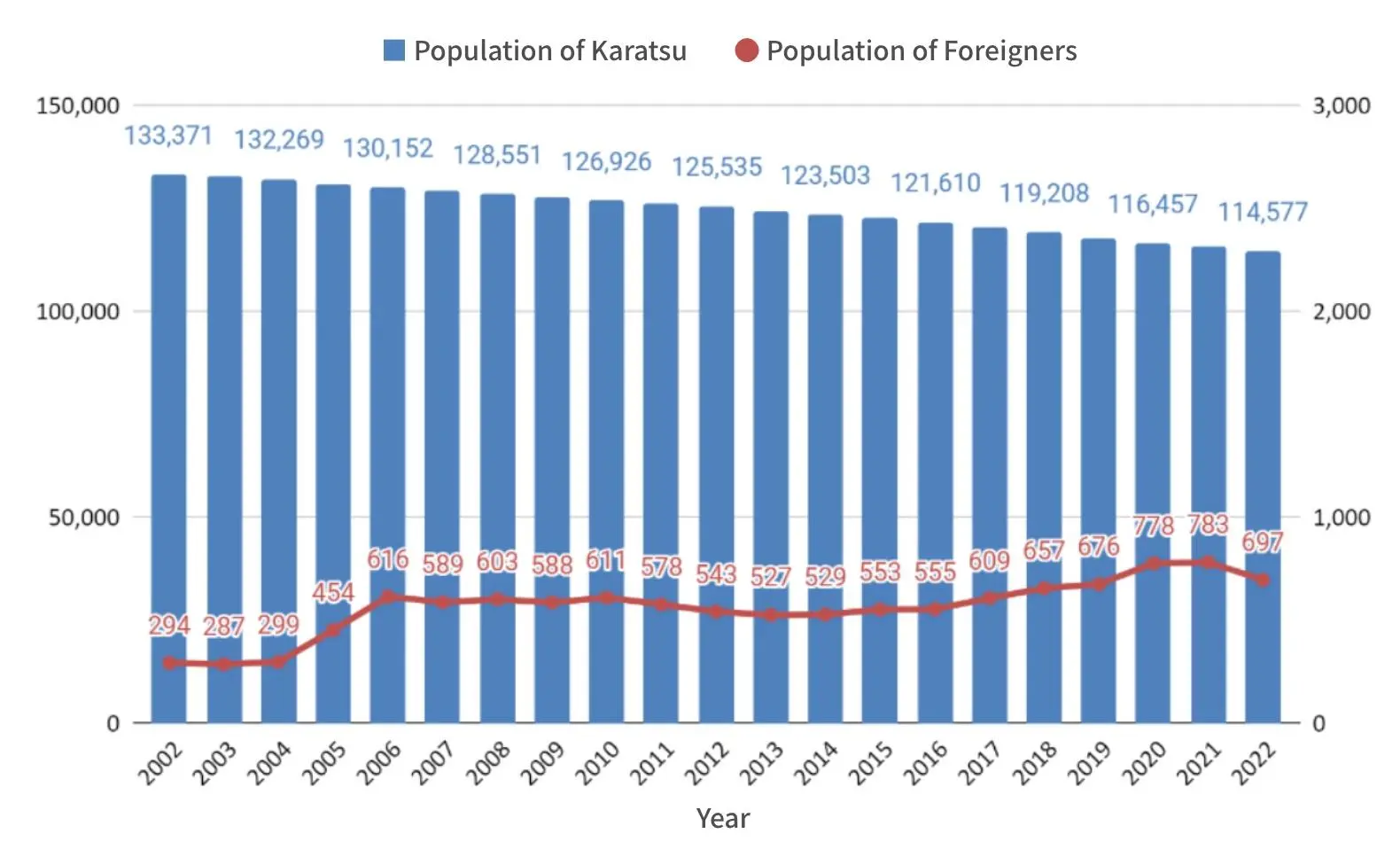
- *1.
- The population as of October 1st of 2005, 2010, and 2015 is based on the “Population Census” by the Statistics Bureau of the Ministry of Internal Affairs and Communications.
- *2.
- Source: Saga Prefecture Statistics and Analysis Division "Saga Prefecture Population Movement Survey"
Three Proposals
I believe taking measures against population outflow is the key to solving depopulation. I propose to establish a "career education" program in collaboration with local schools, companies, and the community. I will use all the experience and skills I have cultivated in the educational field to instill Karatsu pride in today’s children, and increase the number of people who find living and working in Karatsu attractive.
Regarding the 2025 problem, I believe securing human resources is key to providing necessary services to the advanced elderly population. Even so, based on my experience of working in facilities for both the elderly and the disabled, simply increasing the number of staff is not enough. I will continue to interact with care workers and speak passionately about "what we really need." In regards to improving services offered, I will also mention the need for services that support the right to vote, which is a basic human right.
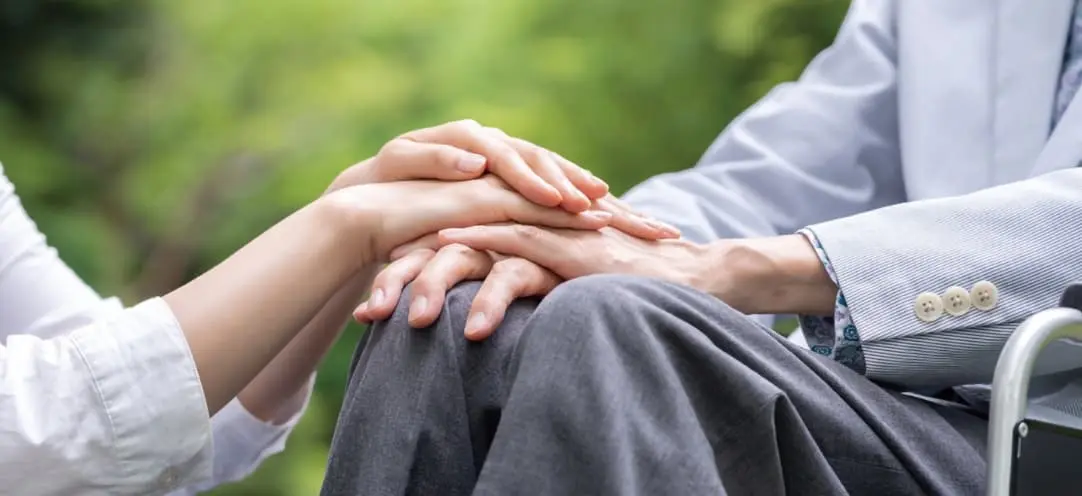
Proposal01 Human Resources & Voting
Background
By the year 2025, approximately 8 million people will be 75 years old or older, meaning 1 in 4 people will be an advanced elderly citizen. Employment, medical, and welfare systems are at a crossroads, and many new policies will be announced in the near future. However, residents living in nursing homes and utilizing residential facilities are unable to receive enough support and are therefore unable to vote, which is vital to developing such policies. Some of the reasons why residents have insufficient help include restricted visitation for family members to prevent infection, overwhelmed care workers due to shortage of staff, and stigma about abilities to vote. Regardless, securing more personnel is key to being able to provide necessary services.
What We Really Need
According to the Social Welfare Promotion and Examination Center, an average of 60,000 certified care workers are registering each year. Facilities with a positive working environment have a low turnover rate and are securing enough staff. I propose to increase the number of gatherings for facility managers to exchange ideas on effective PR activities, interview methods, and how to implement best practices. By increasing such opportunities to exchange information, we can create a supportive network in Karatsu, which will also be useful in times of disaster. We can also prevent facilities from going bankrupt, which is also another recent trend.
Necessary Support to Vote
More services can be provided by securing additional staff. I propose to develop services in which elderly citizens can receive enough support to vote.
The right to vote is a basic human right that is guaranteed to everyone, even those with intellectual disabilities and dementia. Restricting this right is the same as when women did not have the right to vote or to run for office in the past.
Voting by mail is an option, but obtaining a mail-in ballot is burdensome and residents cannot vote without considerable assistance due to health and disability issues. They may not have the correct writing tools, the font may be too small to read, they may need a ride to the nearest mailbox, etc. I consider it a major problem that about a quarter of the nation’s population cannot express their opinions on policies pertaining to their local community or hometown.
To protect this human right, cooperation from family members and care workers is important, but we also need to review government policies regarding elections.
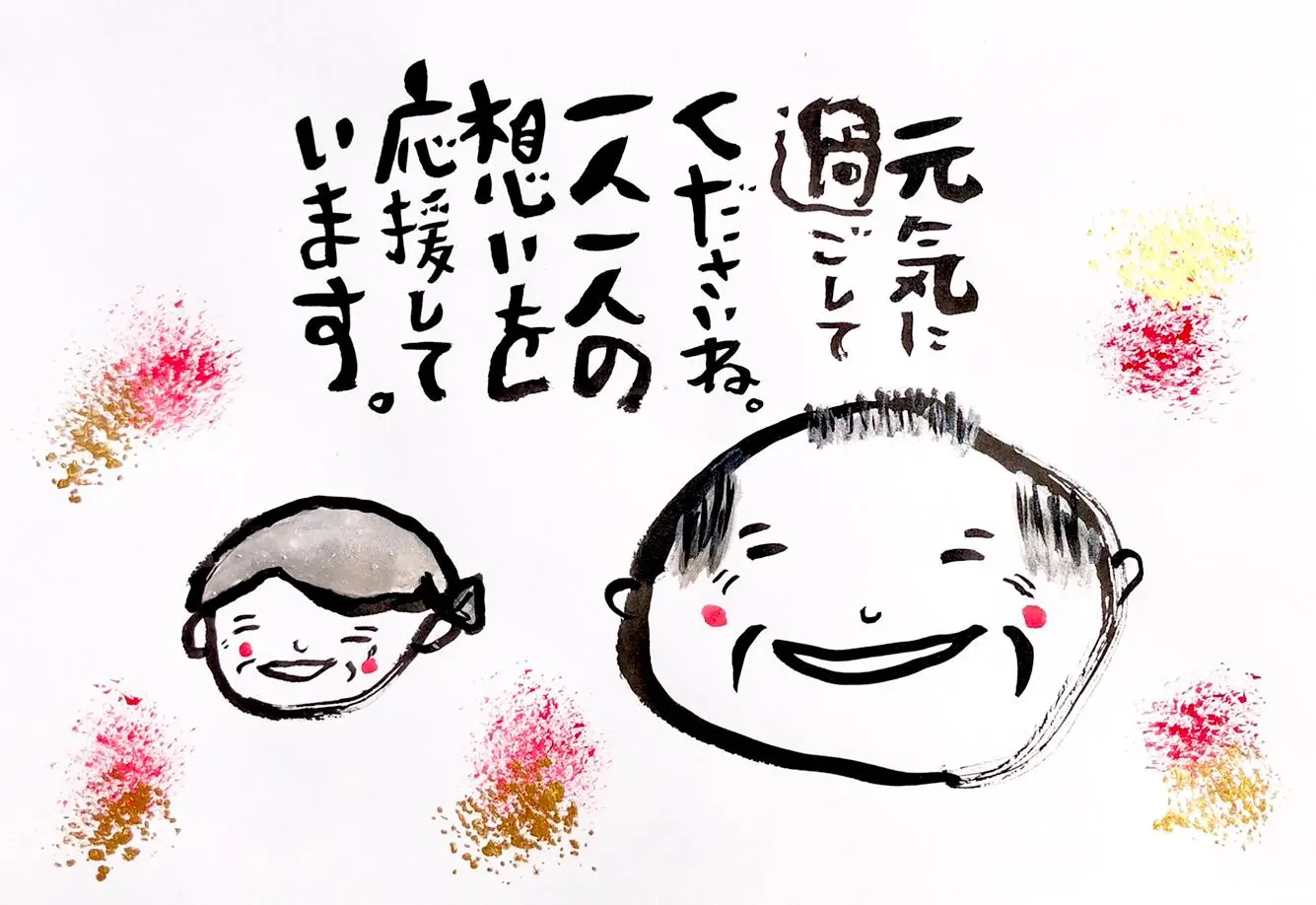
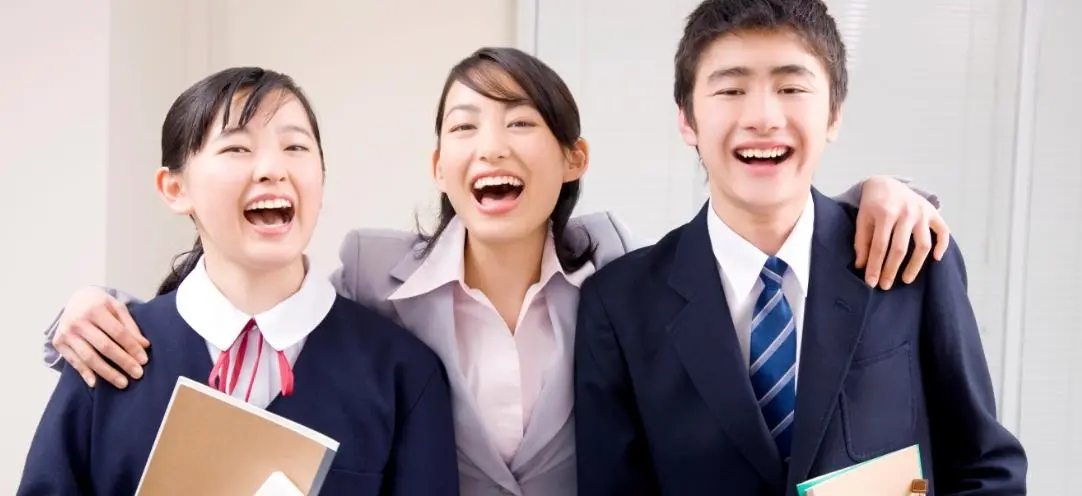
Proposal02 Career Education
Background
Many students who leave Karatsu to attend university do not return to their hometown after graduation. By establishing a career education program that connects adolescents with local companies, I hope to increase the number of children who opt to live and work in Karatsu; even if they leave for university, I want to provide them with a reason to return to Karatsu after graduation. I plan to create events (a Karatsu version of something similar to Kidzania) that connect adolescents with local companies.
What is Career Education?
According to The Ministry of Education, Culture, Sports, Science and Technology, career education is a collective endeavor by the government, local governments, and educational experts to develop "a society full of dreams in which young people can develop their full potential, take on challenges, and be active." It also aims to build "a society where people can expand and demonstrate their talents throughout their lives and can start over at any time."
In other words, career education teaches students how to be an autonomous individual, and how to discover a personal way of life.
Proposed Approach
First, elementary and junior high school students will take various diagnostic tests to help them become aware of their strengths (researcher-type, artist-type, etc.) Then, they will have an opportunity to consider how they can utilize those strengths, and how to polish their skills if they choose to do so.
Next, I plan to create events that connect these students with local companies. The students’ strengths type will be matched with the company’s type and vision. Depending on the program, students may earn a salary and use that currency to purchase products and services from participating companies.
Through this program, students can become more self-aware and realize how supportive their hometown can be. Participating companies can be stimulated by zealous students and even come up with new business ideas. I believe that creating an environment where everyone supports each other's dreams can prevent future population outflow and revitalize Karatsu.

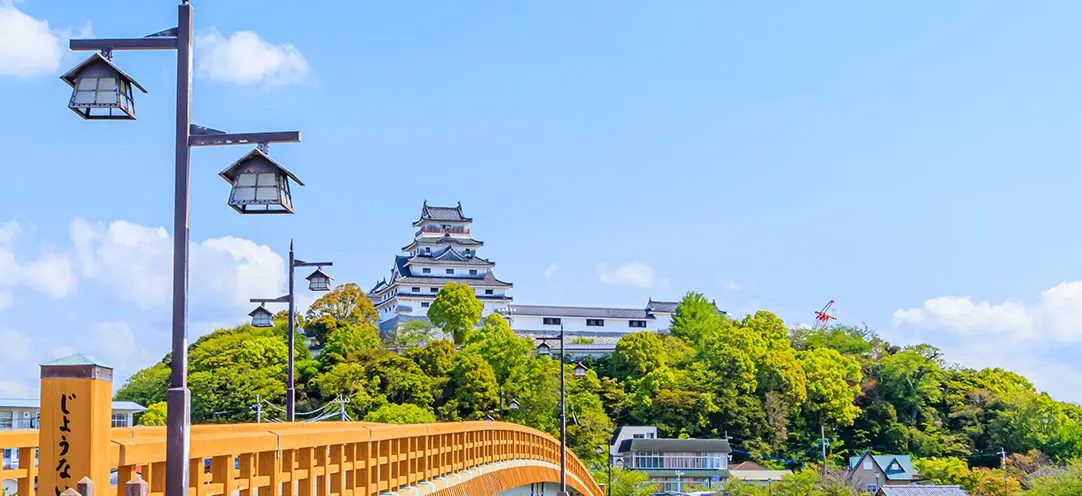
Proposal03 Taikoryo Nexus
Background
The COVID-19 pandemic has significantly increased the availability of online courses and virtual classrooms, making education more accessible. However, physical facilities that foster learning remain essential to address challenges such as isolation, distractions, and lack of motivation.
Positive Learning Environments
Taikoryo Nexus will serve as a hub for lifelong learning, offering equal opportunities for education regardless of gender, age, ability, or health. This initiative aspires to transform Karatsu into a "Learning City," establishing it as a beacon for educational growth and inclusivity.
About 150 years ago, Karatsu was home to "Taikoryo," a groundbreaking school led by my great grandfather, Korekiyo Takahashi. Tragically, the school burned down after just 15 months, leaving its aspirations unfulfilled. The Taikoryo Nexus initiative seeks to revive this dream by creating a modern learning environment tailored to today’s needs.
Vision for the Future
Taikoryo Nexus will honor Karatsu’s rich educational legacy while building a sustainable future centered on learning. It will act as a catalyst for community revitalization, fostering a culture where learning is valued and accessible to all. Karatsu can become a Learning City in Kyushu—a place where knowledge drives progress, inclusivity, and opportunities for generations to come.
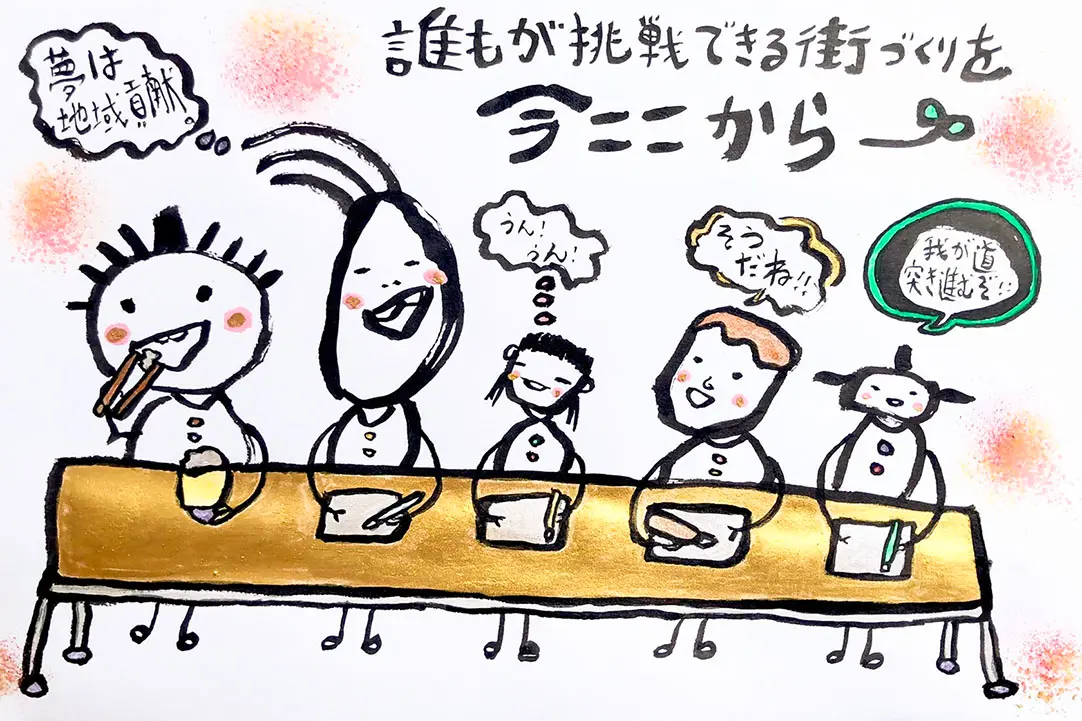
Ways To Participate
Thank you for expressing interest in Team River!
There are currently 4 ways you can participate.
Become A Member
Please fill out the form completely. We will respond within 2 business days.
Financial Contribution
You can wire funds to our bank account or make a payment with your credit card via Kantan Net Kenkin. Please consider a gift of at least ¥1,000.
Share Your Thoughts
Please let us know your thoughts, questions or ideas.We will respond within 2 business days.
Follow Us
Let us get to know you too!
(Available in Japanese only)
* Your personal information including sensitive information will not be disclosed or provided to third parties under any circumstances, unless allowed by laws or by your consent.
Team River Office
- Name
- Team River
- Address
- 1 Nishi-Hamamachi, Karatsu, Saga 847-0855
- Phone
- +81-70-3970-0774(direct line)
- Scope of Activity
- Karatsu City, Saga Prefecture
- Bank Account
-
Bank Name: Japan Post Bank
Branch:778 (seven seven eight)
Account Type: Ordinary
Account Number: 11935237
Account Name: Team River
Representative: River Furuta

How to Make a Donation
Bank Account
Bank Name: Japan Post Bank
Branch: 778 (seven seven eight)
Account Type: Ordinary
Account Number: 11935237
Account Name: Team River
Representative: River Furuta
Attention
- If you would like to wire funds to our bank account, we kindly ask that you cover the bank transfer fee.
- If you would like to pay with your credit card via Kantan Net Kenkin, please register as a member of Senkyo.com (free of charge) so that we can issue you a receipt.
-
We are truly grateful for any amount you can afford, but we respectfully ask that you consider a minimum gift of at least ¥1,000.
- According to the Political Funds Control Act, individual donations are limited to 1.5 million yen per person per year (January to December).
- Donations from minors can be accepted since there is no age limit.
- Anonymous or third-party gifts cannot be accepted, so please contribute in your own name.
- Donations from foreign nationals cannot be accepted.
- Donations under c and d above will be returned to the national treasury.

